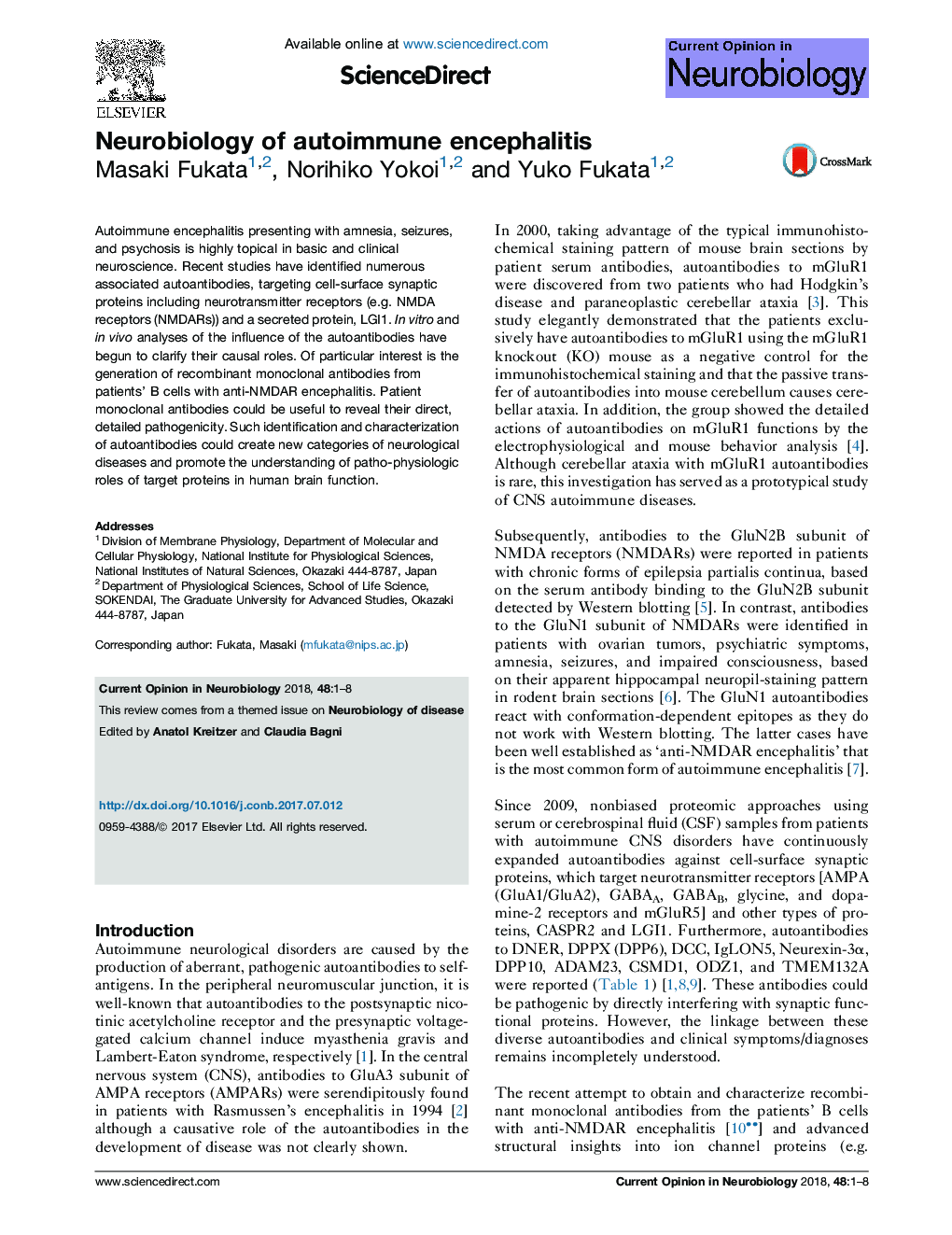| Article ID | Journal | Published Year | Pages | File Type |
|---|---|---|---|---|
| 5736954 | Current Opinion in Neurobiology | 2018 | 8 Pages |
Abstract
Autoimmune encephalitis presenting with amnesia, seizures, and psychosis is highly topical in basic and clinical neuroscience. Recent studies have identified numerous associated autoantibodies, targeting cell-surface synaptic proteins including neurotransmitter receptors (e.g. NMDA receptors (NMDARs)) and a secreted protein, LGI1. In vitro and in vivo analyses of the influence of the autoantibodies have begun to clarify their causal roles. Of particular interest is the generation of recombinant monoclonal antibodies from patients' B cells with anti-NMDAR encephalitis. Patient monoclonal antibodies could be useful to reveal their direct, detailed pathogenicity. Such identification and characterization of autoantibodies could create new categories of neurological diseases and promote the understanding of patho-physiologic roles of target proteins in human brain function.
Related Topics
Life Sciences
Neuroscience
Neuroscience (General)
Authors
Masaki Fukata, Norihiko Yokoi, Yuko Fukata,
